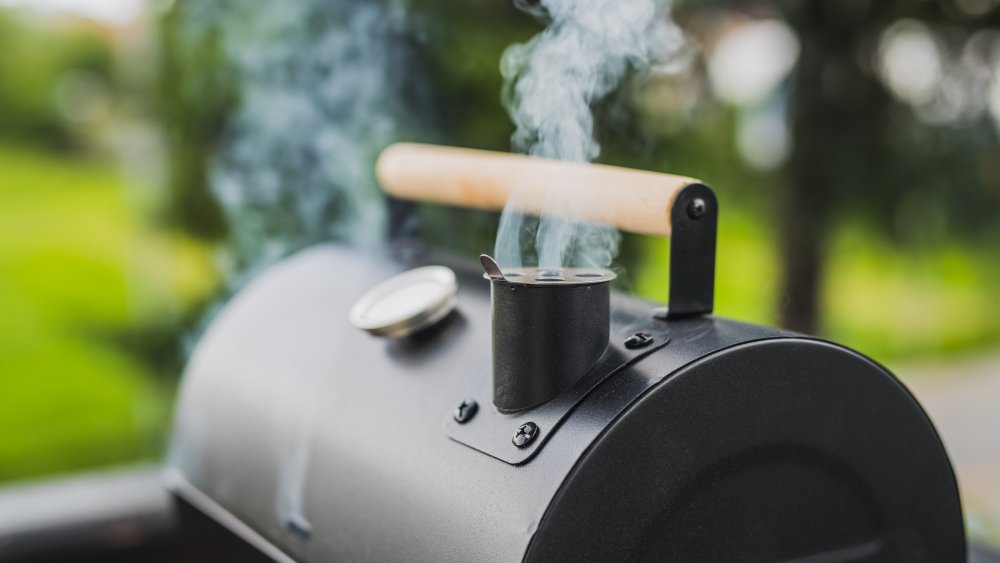The Biggest Mistakes You're Making When Using A Smoker
Barbecue (or BBQ) fans know that there's no substitute for slow-cooked, smoked food from brisket to wings to potatoes and even macaroni and cheese. There are reasons we love this cooking technique. Slow smoking helps to create tender meats (think caramelization, not tough edges), and the smoke itself acts as a preservative to help food last longer in both the fridge and freezer (via Life Hacker). The flavor of smoke adds a down-home earthy aroma that is fun to pair with your favorite fruit, cheese, or whiskey, and the act of getting that perfect smoked meat is supremely satisfying too.
But when working towards that perfect smoke, there are a number of mistakes you're probably making. A little smoke goes a long way – you don't want to over-smoke your meats or veggies (via Smoked BBQ Source). Remember that while the smoke wood adds flavor, you can ruin your barbecue by overwhelming it with smoke. In that same spirit, don't set a whole bunch of wood on fire. Don't trap the smoke in the grill by closing all your vents either.
BBQ champion Melissa Cookston advises, "A smaller, clean burning fire is much preferred to a larger amount of fuel that you will have to keep 'choked down' with your air intakes, or worse, squirted with the spray bottle. This will result in much cleaner flavors and more consistent cooking temperatures. White, thin smoke is good; black, thick smoke is bad" (via Food and Wine).
Don't blame your smoker for these BBQ mistakes
It's easy for newer pitmasters to blame the smoker for any failures, but a large number of mistakes come down to human error. As mentioned above, the key to successful smoking is "low and slow" or low temperatures and slow cooking over time. If you try to rush it to meet a dinner schedule – you'll likely ruin the dish. Smokers are also rather simple machines. When more "bells and whistles" are added to a device, we humans tend to tinker. But unless you have significant experience with smokers, don't drastically change settings. Follow the recipe guidelines for ventilation and cook times. Use a simple digital thermometer to test your meat's doneness.
And don't lose patience.
Even if you let the meat cook for the proper length of time, you still need to let it rest. "Always let the meat rest for about 45 minutes, so the juices can redistribute," says Franco V., pitmaster at Holy Ground. "You must let it rest!" And one last thing to remember if you're cooking for a long time – don't overdo the brews while waiting for the meat to cook. A few casual drinks are probably fine, but even 1-2 brews an hour can add up over time. Being tipsy not only risks ruining your food, but it's not a safe idea near heat and flame anyway.
So keep it slow and simple to avoid these pitfalls in the pit. Happy smoking!

